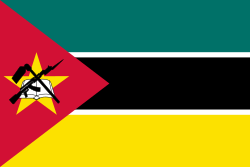
Wars of national liberation
Conflict fought for national liberation / From Wikipedia, the free encyclopedia
Dear Wikiwand AI, let's keep it short by simply answering these key questions:
Can you list the top facts and stats about Wars of national liberation?
Summarize this article for a 10 years old
Wars of national liberation, also called wars of independence, are conflicts fought by nations to gain independence. The term is used in conjunction with wars against foreign powers (or at least those perceived as foreign) to establish separate sovereign states for the rebelling nationality. From a different point of view, such wars are called insurgencies, rebellions.[1] Guerrilla warfare or asymmetric warfare is often utilized by groups labeled as national liberation movements, often with support from other states.

The term "wars of national liberation" is most commonly used for those fought during the decolonization movement. Since these were primarily in the third world against Western powers and their economic influence and a major aspect of the Cold War, the phrase itself has often been viewed as biased or pejorative.[2] Some of these wars were either vocally or materially supported by the Soviet Union, which stated itself to be an anti-imperialist power, supporting the replacement of western-backed governments with local communist or other non pro-western parties.[1][3] However, this did not always guarantee Soviet influence in those countries. In addition to and increasingly in competition to the Soviet Union, the People's Republic of China presented themselves as models of independent nationalist development outside of Western influence, particularly as such posturing and other longterm hostility meant they were regarded as a threat to Western power and regarded themselves as such, using their resources to politically, economically and militarily assist movements such as in Vietnam. In January 1961 Soviet premier Nikita Khrushchev pledged support for "wars of national liberation" throughout the world.[4]
When the nation is defined in ethnic terms, wars fought to liberate it have often entailed ethnic cleansing or genocide in order to rid the claimed territory of other population groups.[5][6][7]